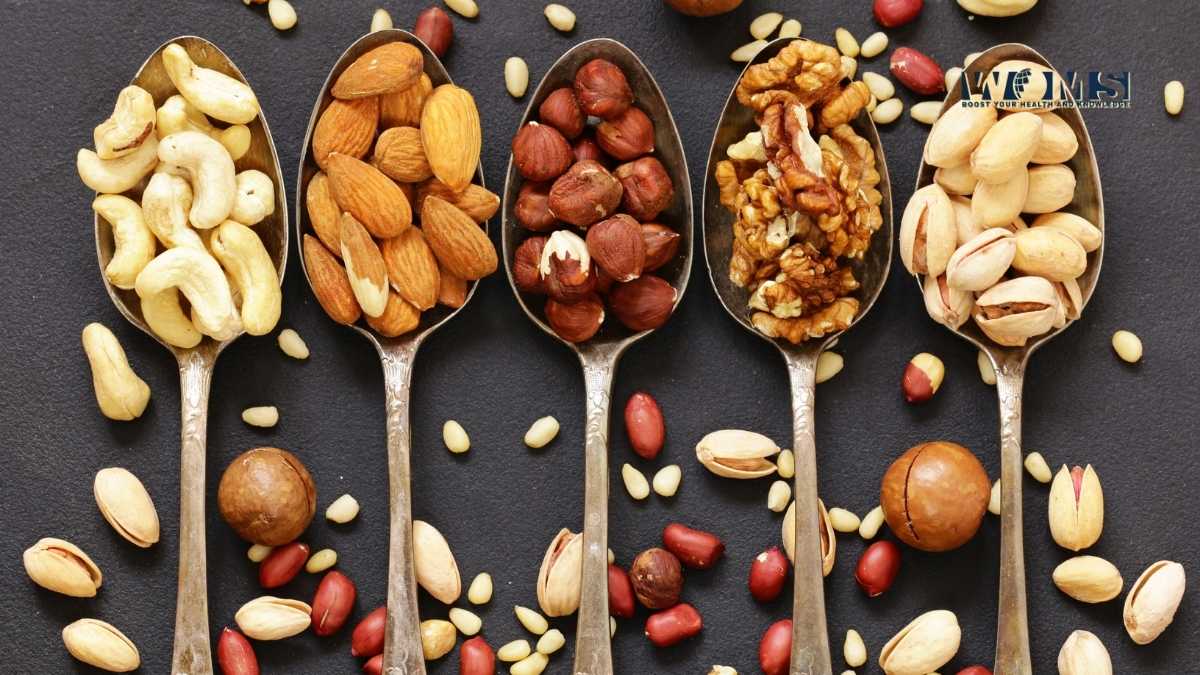The Top Nuts That Will Make You Healthier

Many people already know that nuts, in general, are high in fat, but this fat is a healthy type. Nuts are also a great source of protein and fiber. Amongst the many benefits of nuts, they also help in reducing risk factors associated with heart disease. Nuts are a very good source of fiber, protein, and monounsaturated fat, along with a number of minerals and vitamins such as vitamin E and magnesium.
Many studies have shown that eating nuts can actually help you live longer. This can be attributed to the fact that nuts have the ability to prevent risk factors for chronic diseases such as high blood pressure, cholesterol, and metabolic syndrome.
Eating nuts can also help you to reduce the risk of developing chronic diseases such as certain types of cancers. To learn more about the health benefits of nuts, visit Foodsguy.com. Here are a few of those benefits discussed in detail.
Pistachios
The pistachio is a very popular nut that is also high in fiber. A 1-ounce serving contains 3 grams of fiber, 8 grams of carbs, 12.5 grams of fat, 156 calories, 6 grams of protein, 3 percent of the RDI of vitamin E, and 8 percent of the RDI of magnesium.
Eating 2 to 3 ounces of pistachios per day will help to increase your good HDL cholesterol. Consuming pistachios will also help to improve other risk factors for heart disease, oxidative issues, and high blood pressure.
Cashews
Cashews contain excellent nutrients and are part of the tree nut family. One ounce of cashews will contain 1 gram of fiber, 5 grams of protein, 155 calories, 9 grams of carbs, 1 percent of the RDI of vitamin E, and 20 percent of the RDI of magnesium.
Studies have shown that symptoms of metabolic syndrome have been helped by a diet that is high in cashews. A study has revealed that blood pressure has been improved in people with metabolic syndrome by following a diet that contains 20 percent of calories from cashews. Cashews are also known to increase the antioxidant properties of any diet.
Macadamia Nuts
If you are looking for a good source of monounsaturated fat, then macadamia nuts are what you should go for. One ounce of macadamia nuts includes 2.5 grams of fiber, 2 grams of protein, 21 grams of fat, 4 grams of carbs, 1 percent of the RDI of vitamin E, and 9 percent of the RDI of magnesium. Macadamia nuts have a high content of monounsaturated fats, which promotes heart health.
Various studies have shown that including a healthy proportion of macadamia nuts in your diet can help to lower bad LDL cholesterol. The American Heart Association recommends a diet that is rich in macadamia nuts. Other risk factors for heart disease can also be lowered by macadamia nuts such as inflammation and oxidative stress.
Hazelnuts
Hazelnuts are known to be very nutritious, with every ounce containing 3.5 grams of fiber, 9 grams of fat, 6 grams of carbs, 6 grams of protein, 37 percent of the RDI of vitamin E, and 20 percent of the RDI of magnesium. Hazelnuts, like many other nuts, also have beneficial effects to reduce the risk factors of heart disease.
Research has revealed that consuming a diet that is rich in hazelnuts has been able to reduce total cholesterol, triglycerides, and LDL cholesterol. It also helps to improve the function of blood vessels and lower markers of inflammation. Some research has indicated that amounts of vitamin E in the blood can also be increased by eating hazelnut as well as improvements in cholesterol levels.
Peanuts
Peanuts actually belong to the legume family. Despite this, peanuts have the same health benefits and nutrient profiles as tree nuts. One ounce of dry-roasted peanuts contains 3 grams of fiber, 5 grams of carb, 176 calories, 4 grams of protein, 21 percent of the RDI of vitamin E, and 11 percent of the RDI of magnesium.
Studies have shown that taking higher amounts of peanuts reduces the risk factors associated with heart disease. Peanut butter has reduced diabetes type 2 rates in women who ate it more than five times per week.
Further studies revealed that children whose mothers ate peanut butter once or more per week while they were pregnant had reduced allergic disease and asthma rates. You need to choose a peanut butter that has the highest peanut content as many brands include a significant amount of added sugar and oils in their product.
You need to pick peanuts that are unsalted, plain, and unflavored to get the most health benefits as salted peanuts will eliminate some of the intended health benefits.
Almonds
Almonds provide quite a few nutritional benefits. Each 28-gram serving roughly contains 3.5 grams of fiber, 6 grams of carbs, 14 grams of protein, 37 percent of the RDI of vitamin E, and 19 percent of the RDI of magnesium. Almonds are known to improve the levels of LDL cholesterol, also known as bad cholesterol, and also the oxidized LDL cholesterol that is particularly bad for the heart.
Overweight or obese people can benefit from increasing the number of almonds in their diet as it might aid in losing weight and lowering blood pressure.
Final Thoughts
You can benefit from a varied range of nutrients if you choose to eat a diet containing nuts, one of the healthiest snacks available. You must be sure, though, to pick nuts that have no added ingredients or have been processed minimally.
Nuts can contribute toward lowering the risk factor for many chronic diseases when taken as a part of a diet that consists of another whole, natural foods. So move toward a healthier life by including nuts into your daily diet.




